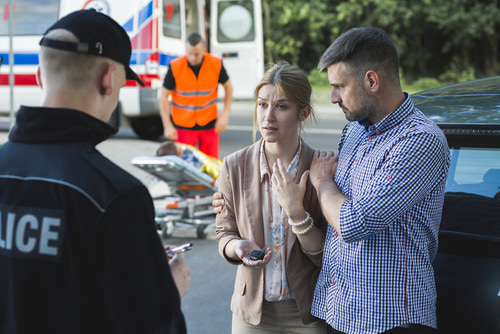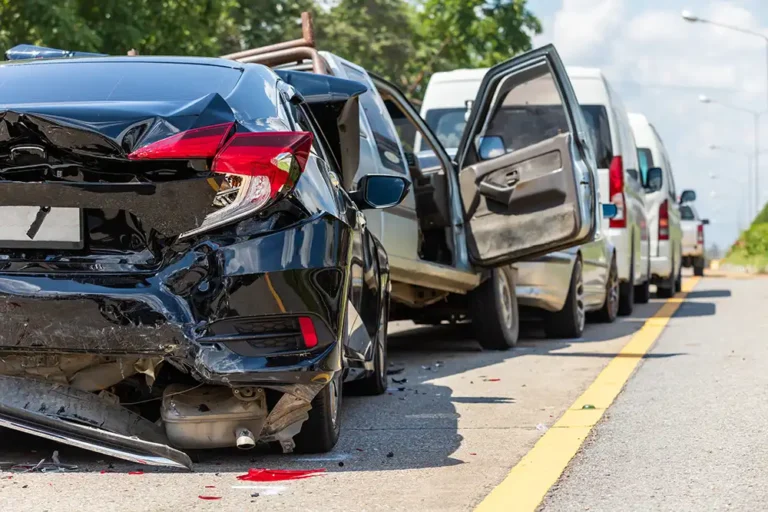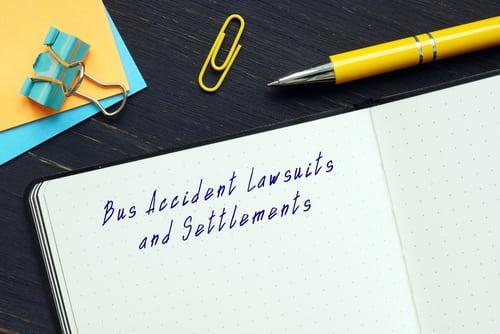Car accidents are unfortunately common and dealing with the aftermath can be stressful and confusing. Taking the right steps immediately after a car accident in Georgia can help safeguard your health and make the process of getting financial compensation smoother. In this guide, we’ll walk you through what to do after a car accident.
Our experienced legal team at Horst Shewmaker is dedicated to helping accident victims in Alpharetta and across Georgia get the compensation they deserve. If you’ve been in a wreck, contact our Alpharetta car accident lawyers for a free consultation today.
Accident Scene: What to Do Immediately After a Car Accident
The scene of the accident is where you begin setting the groundwork for your claim and protecting your rights.
Call 911
Calling 911 should be your first step after a car accident in Georgia. Ask for medical help if there are injuries. You should contact law enforcement even if it’s a minor accident. The police report will be important evidence in your car accident claim.
The Other Driver and Witnesses
Next, exchange contact and insurance details with the other driver. Make sure to get the following information:
- Full name, phone number, and address of the driver and passengers
- Insurance company names and policy numbers of the other driver
- License plate numbers and vehicle details (make, model, color)
- Driver’s license number
Be polite and calm when talking with the other driver. Ask any witnesses for their names and contact information. Witness testimony can strengthen your case by confirming your account of what happened.
Take Pictures of the Accident Scene
Use your phone to take pictures of the scene from multiple angles, including:
- The damage to all vehicles involved
- Road conditions, skid marks, and any visible road signs
- Any property damage, such as damaged guardrails or signposts
- License plates of all vehicles involved
- Any visible injuries
Capturing the scene as accurately as possible can provide your insurance company, attorney, and, if necessary, the court with important evidence.
Don’t Admit Blame or Argue
It’s important not to accept or assign blame while you’re still at the scene. Admitting fault could hurt your ability to claim compensation, even if you’re not fully responsible for the accident. Georgia has a comparative negligence law, which means your compensation could be reduced if you’re partially at fault.
Be careful with your words. Even a simple “I’m sorry” could be used against you by the other driver’s insurance company or attorney. Arguing with the other driver can escalate emotions.
Instead, provide factual information to the police and let them determine what happened.
Seeking Medical Attention
One of the most important steps after a car accident is to seek medical attention, even if you feel fine initially.
Some injuries, such as concussions, whiplash, or internal injuries, may not manifest immediately. Adrenaline and shock can mask pain, which may only become apparent hours or even days later. A medical evaluation can detect injuries early, leading to faster recovery.
Medical records are important for supporting your personal injury claim. Insurance companies and courts rely heavily on medical documentation when assessing injury claims.
Delaying medical treatment could worsen your injuries and negatively impact your case. If you don’t seek treatment promptly, insurance companies may argue that your injuries are unrelated to the accident, which could harm your chances of receiving fair compensation.
Dealing With Insurance Companies
Navigating the car accident insurance process claims can be challenging, and mistakes may affect your ability to receive compensation.
It’s in your best interest to avoid giving a recorded statement or detailed account to insurance until you’ve spoken with a lawyer. The wise option is to let your attorney communicate with the insurance companies on your behalf.
Communicating With Your Insurance Company
It’s essential to notify your insurance company quickly after a car accident. Most car insurance policies issued in Georgia require notice of any claims as soon as reasonably practicable after a car accident. However, you should avoid giving a recorded statement or detailed account without consulting a lawyer.
A car accident attorney can send a notice on your behalf and ensure you don’t offer information that could damage your case.
The Other Driver’s Insurance Company
After a car accident, it is common for the other party’s insurance company to call. However, you’re under no obligation to speak with them. Don’t talk to the other driver’s insurance company without a lawyer.
Insurance adjusters are trained to shift blame or minimize your claim if they can. If you get a call from the other driver’s insurance company, we recommend getting the person’s name, phone number, and company name. Then, politely explain that you do not feel well and you will call back.
How a Car Accident Lawyer Can Help Your Case
A skilled car accident attorney can make a substantial difference in your ability to pursue fair compensation and navigate the complexities of an accident claim. Here’s how Horst Shewmaker can support you after a car accident in Georgia.
Gathering Evidence to Support Your Case
A car accident lawyer will help you gather all the necessary evidence, including police reports, medical records, and witness statements, to build a strong case. Your attorney can also access additional resources, such as expert witnesses or accident reconstruction specialists, to establish liability.
Negotiating a Settlement
Insurance companies often attempt to settle claims quickly and for as little as possible. A car accident lawyer understands the tactics insurers use and can negotiate on your behalf to ensure you receive fair compensation. They’ll help you assess the full extent of your losses, including medical expenses, lost wages, property damage, and pain and suffering.
Representing You in Court if Necessary
If the insurance company won’t offer a fair settlement, our attorneys are prepared to take your case to court. Litigation requires a thorough understanding of Georgia’s car accident and personal injury laws. Your lawyer will present your case to the court, advocate on your behalf, and work to secure the compensation you deserve.
Contact Horst Shewmaker for a Free Consultation
Being involved in a car accident can be a traumatic experience, and it’s easy to feel overwhelmed in the moments following the crash. However, by staying calm, following the right steps at the scene, seeking medical attention, and seeking legal guidance, you can protect your rights and put yourself in a stronger position to seek compensation.
If you or a loved one has been injured in a car accident in Georgia, contact Horst Shewmaker for a free consultation. Our experienced attorneys are here to help you navigate the aftermath of an accident, communicate with insurance companies on your behalf, and guide you through the process of pursuing justice. Remember, you don’t have to handle this situation alone—our team is here to provide the support and representation you need.







